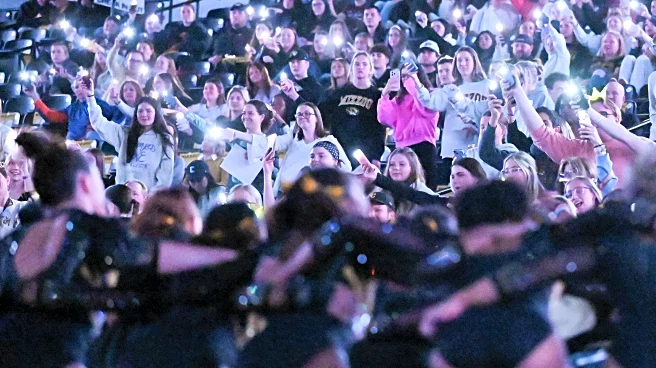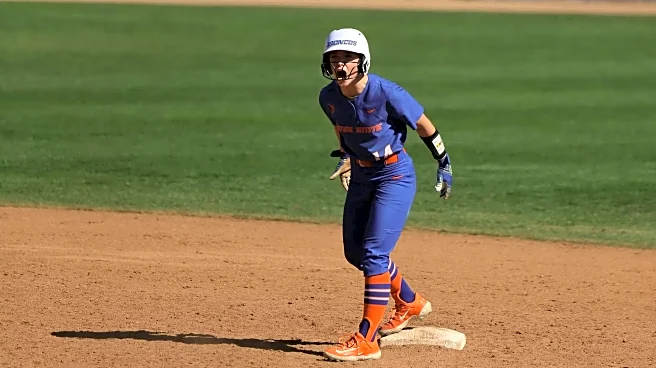What is the story about?
What's Happening?
Patricia Harrison, President and CEO of the Corporation for Public Broadcasting (CPB), accepted the 2025 Governors Award at the Creative Arts Emmys, highlighting the organization's significant contributions to public media. The CPB is facing closure due to the rescission of $1.1 billion in federal funding by the GOP, which was allocated for the next two fiscal years. This decision follows President Trump's criticism of PBS and NPR programming as biased. The CPB, established in 1967, has been instrumental in supporting over 1,500 public radio and television stations across the U.S., with 70% of its funding directed to local stations. The organization will cease operations by January 2026, affecting around 100 employees.
Why It's Important?
The closure of the CPB marks a significant shift in the landscape of public media in the United States. The loss of federal funding threatens the sustainability of local stations, which rely heavily on CPB grants to connect with their audiences. This development raises concerns about the future of public broadcasting, which has been a trusted source of information for many Americans. The decision could lead to reduced access to diverse and educational programming, impacting communities that depend on public media for news and cultural content. The move also reflects broader political tensions regarding media bias and funding priorities.
What's Next?
As the CPB prepares to shut down, local stations will need to explore alternative funding sources to continue operations. This may involve increased fundraising efforts and seeking private donations to fill the gap left by federal support. The transition team in place until January 2026 will manage the closure process, but the long-term viability of many stations remains uncertain. Stakeholders, including media advocates and community leaders, may push for legislative action to restore funding or develop new models for public media support.
Beyond the Headlines
The closure of the CPB could have lasting implications for the cultural and educational landscape in the U.S. Public media has played a crucial role in promoting civic engagement and providing a platform for underrepresented voices. The loss of CPB funding may lead to a homogenization of media content, reducing the diversity of perspectives available to the public. Additionally, the decision underscores the ongoing debate over the role of government in supporting media and the balance between public and private interests in the broadcasting sector.


















